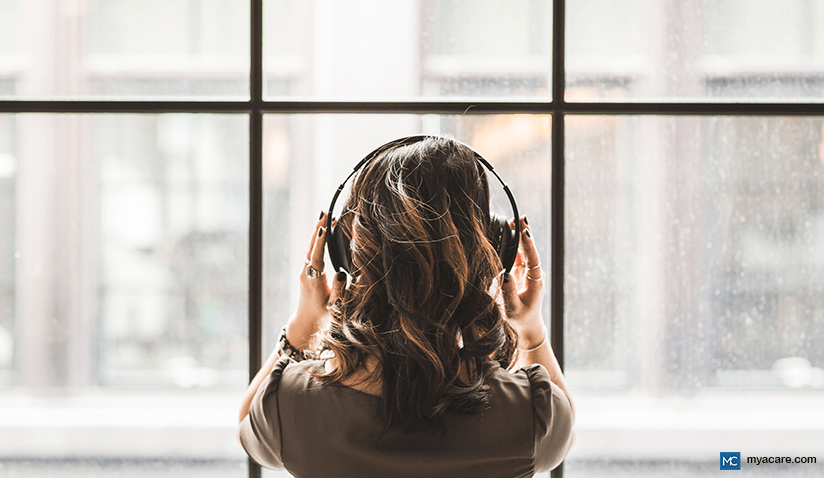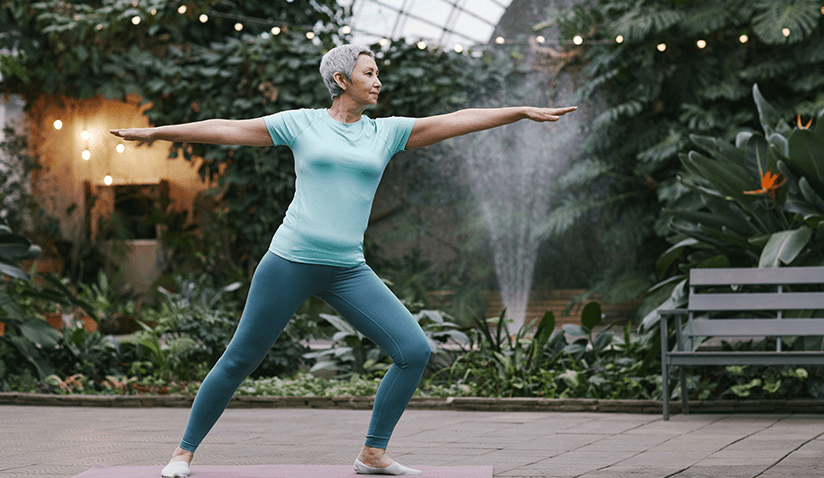WHAT IS TINNITUS?

Tinnitus is when you perceive a noise or ringing in the ears without the existence of a corresponding external source, each episode lasting around 5 minutes or longer. This is a very common problem associated to a multitude of physical factors [1]. The condition is mostly studied in the context of elderly people (>65 years old) however it has become more common in younger ages groups due to a range of factors such as noise induced hearing loss.
Tinnitus is not a disease itself but a symptom that may develop as a result of various other medical conditions highlighted below. The exact mechanism behind tinnitus is not well understood, however, some hypothesis consider that it might be related to the rearranging of the neural pathways related to hearing [3].
Some known causes of tinnitus are:
- Noise-induced hearing loss
- Age-induced hearing loss
- Otosclerosis
- Otitis
- Impacted cerumen
- Other causes of hearing loss
- Head injuries
- Whiplash
- Multiple sclerosis
- Acoustic neuromas
- Treatment with: Salicylates, nonsteroidal anti-inflammatory drugs, aminoglycoside antibiotics, loop diuretics, and chemotherapy agents (e.g., platins and vincristine)
- Temporomandibular-joint dysfunction
- Other dental problems
It Is important for us to acknowledge that there are a lot of misconceptions about tinnitus. When people (especially young people) suddenly start hearing this unexplainable sound they usually think that there is a dangerous or even life-threatening cause behind it. The fact is that, although there is almost always an underlying condition causing tinnitus, most of the things capable of triggering the condition pose no immediate threat to our life or health [2]. Only if tinnitus is very persistent (>5 minutes) or frequent (>1 each week) it might indicate that the phenomenon is associated with an active pathological process that should be evaluated by a medical professional [1].
Tinnitus is also strongly correlated to hearing loss, which comes as no surprise since many of the risk factors for this condition are like the ones for damage or degradation of the auditory system. These factors include [3]:
- Sex: Men are slightly more prone to experience tinnitus (1% more than women)
- Age: People over 65 years old are more vulnerable to this condition
- Race: White people are more vulnerable
- State of mind: Anxiety and stress can be triggers
- Noise exposure: Frequent exposition to loud noise is a strong
- Medication: Some pharmaceuticals have an effect the auditory system
- Vascular diseases affecting the head or neck
We’ll explore the factor of noise exposure by studying the case of exercise classes/sessions. These settings are known for motivating people into an exercise routine using music at very high volume which can get up to 8 times the recommended level for noise exposure [4]
Interestingly, the mix of workout and noise can create a higher risk for tinnitus and damage to the auditory system. The combination of a high metabolic rate, depressed stapedius muscle reflexes and an elevated body temperature during strenuous activity can make the ear more vulnerable to damage when compared to a more relaxed state [4].
The use of music at a high-volume during workout sessions is not only common, is expected and associated with a greater enjoyment. When the volume is lower than 80 dB(A), the risk for experiencing tinnitus is very low, but people will often complain of not being able to hear the music. Some studies recommend the use of music at 86 dB(A) for this type of activities since it provides a good balance between volume and risk for tinnitus [5].
Now that we know more about tinnitus, the next step is finding ways to prevent it. The following are some tips to protect your ears from damage [6].
- Avoid infections by cleaning any object that you insert in your ear (earplugs, hearing aids, etc)
- Since emotional stress is a known trigger, it is recommended to live a balanced life and take time to de-stress.
- Try to not be next to the speakers while they are blasting audio at a high volume.
- Nowadays, most devices come with some indication of a “safe” volume designed to cause as little damage to your ears as possible, follow these indications.
- In situations where you must be exposed to a lot of noise for a considerable amount of time, take breaks to give some rest to your ears or wear ear plugs.
If you suspect you have hearing problems, make sure to visit an ENT Doctor. Try to look for the best ENT Doctor near you. For example, if you live in India, or want to visit India for Healthcare, use the internet to search for the best ENT hospital in India.
To search for the best ENT Providers worldwide, please use the Mya Care Search Engine.
References:
- Henry, J. A., Dennis, K. C., & Schechter, M. A. (2005). General Review of Tinnitus. Journal of Speech, Language, and Hearing Research, 48(5), 1204-1235. doi:10.1044/1092-4388(2005/084)
- Heller, A. J. (2003). Classification and epidemiology of tinnitus. Otolaryngologic Clinics of North America, 36(2), 239-248. doi:10.1016/s0030-6665(02)00160-3
- Lockwood, A. H., Salvi, R. J., & Burkard, R. F. (2002). Tinnitus. New England Journal of Medicine, 347(12), 904-910.
- Sinha, S., Kozin, E. D., Naunheim, M. R., Barber, S. R., Wong, K., Katz, L. W., … Remenschneider, A. K. (2016). Cycling exercise classes may be bad for your (hearing) health. The Laryngoscope, 127(8), 1873-1877. doi:10.1002/lary.26331
- Wilson, W. J., & Herbstein, N. (2003). The Role of Music Intensity in Aerobics: Implications for Hearing Conservation. Journal of the American Academy of Audiology, 14(1), 29-38. doi:10.3766/jaaa.14.1.5
- How do I prevent it? (n.d.). Retrieved from https://www.tinnitus.org.uk/how-do-i-prevent-it
Disclaimer: Please note that Mya Care does not provide medical advice, diagnosis, or treatment. The information provided is not intended to replace the care or advice of a qualified health care professional. The views expressed are personal views of the author and do not necessarily reflect the opinion of Mya Care. Always consult your doctor for all diagnoses, treatments, and cures for any diseases or conditions, as well as before changing your health care regimen. Do not reproduce, copy, reformat, publish, distribute, upload, post, transmit, transfer in any manner or sell any of the materials in this blog without prior written permission from myacare.com.



